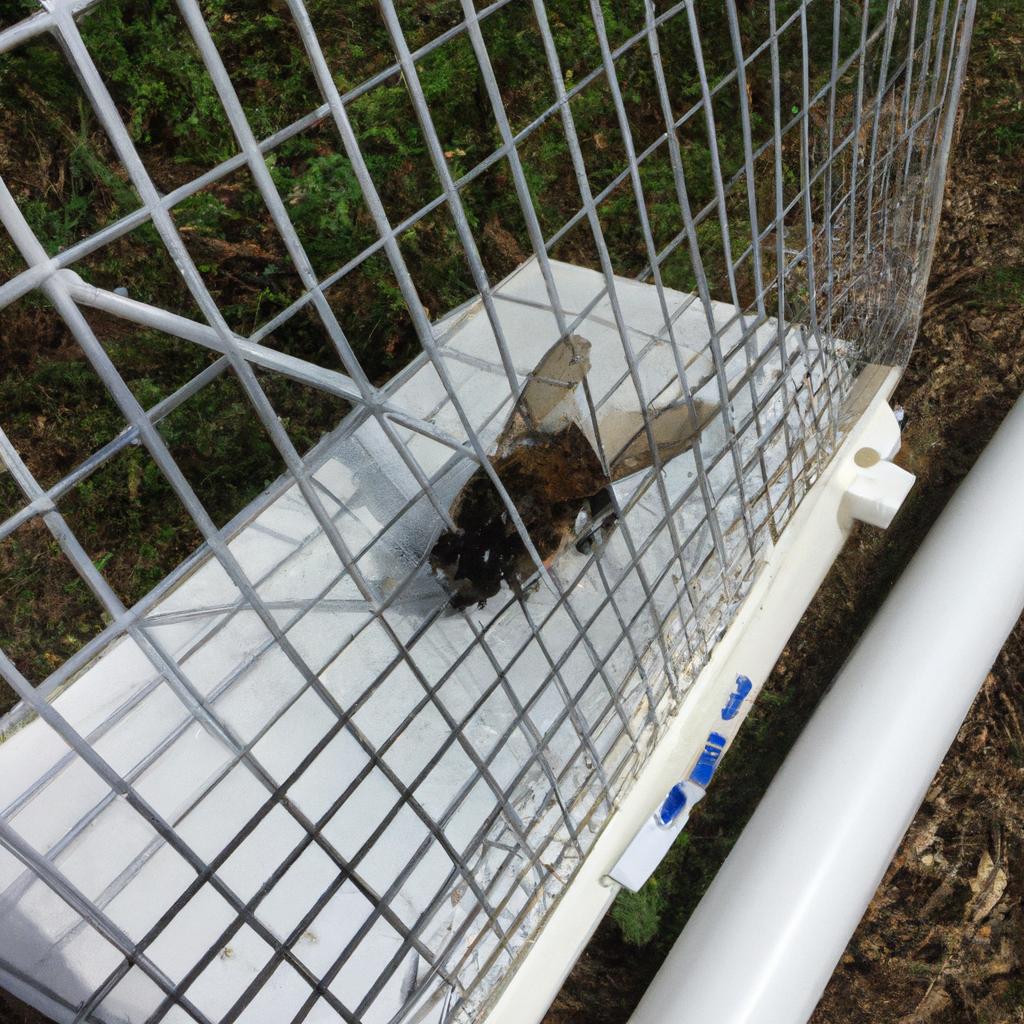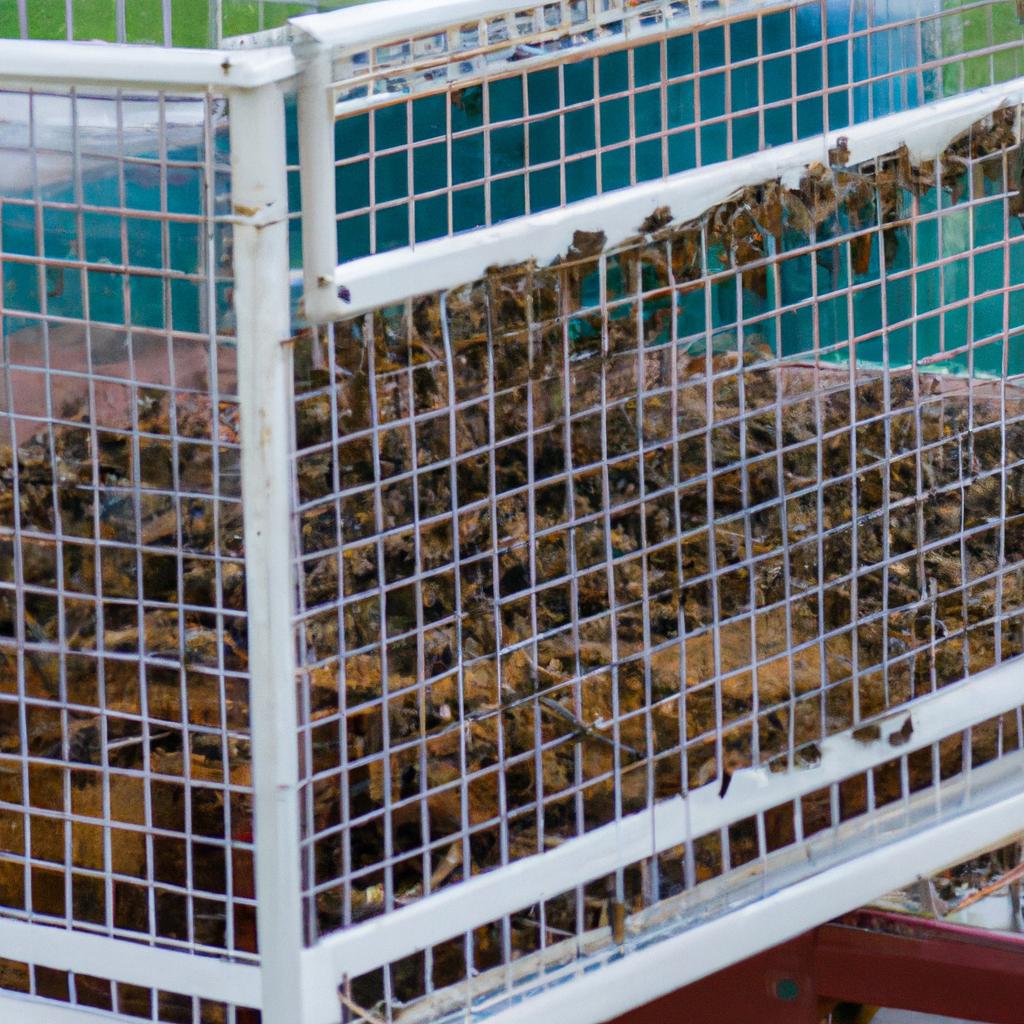As a crucial member of a bee colony, the queen bee’s lifespan plays a vital role in the hive’s overall health and productivity. Queen bees are responsible for laying eggs, ensuring the colony’s survival, and maintaining order within the hive. However, there may be instances where beekeepers need to cage a queen bee for various reasons. This article will explore how long a queen bee can live in a cage and the factors that may affect her lifespan.
Lifespan of a Queen Bee

The lifespan of a queen bee is a critical factor in the success of a bee colony. A queen bee’s natural lifespan can range from two to five years, depending on various factors, including genetics and environmental conditions. A healthy queen bee can lay up to 2,000 eggs per day, ensuring the colony’s growth and sustainability. However, as a queen bee ages, her egg-laying capacity decreases, leading to the colony’s decline.
Several factors could affect the queen bee’s lifespan, including the colony’s size, the availability of food, and the queen’s genetics. A small colony may not provide enough food and protection for the queen bee, leading to her premature death. Likewise, a queen bee’s genetics can affect her lifespan. Some queen bees are genetically predisposed to live longer lives than others, leading to healthier colonies and higher honey production.
In summary, the queen bee’s lifespan is critical to the overall health and productivity of the bee colony. Factors such as genetics, environmental conditions, and food availability can all affect the queen bee’s lifespan. Understanding the natural lifespan of a queen bee is vital to ensure her health and the colony’s success.
Caging a Queen Bee

Caging a queen bee is a common practice among beekeepers. There may be instances where a beekeeper needs to cage a queen bee, such as during transportation or when re-queening a colony. Caging a queen bee allows beekeepers to control the colony’s growth and reproduction, ensuring the queen bee’s safety during transportation.
There are several types of cages that beekeepers can use to cage a queen bee, including plastic cages, wooden cages, and metal cages. These cages typically have a mesh or wire covering to allow the queen bee to breathe and prevent her from escaping. Before caging a queen bee, beekeepers must prepare the cage and ensure the queen bee has enough food and water to survive.
Caging a queen bee can be stressful for both the queen and the colony. Beekeepers must handle the queen bee with care to prevent injury or death. It is essential to monitor the queen bee’s behavior and health while in the cage to ensure she is thriving. In the next section, we will explore how long a queen bee can live in a cage and the factors that may affect her lifespan.
Caging a Queen Bee
Reasons for Caging a Queen Bee
Caging a queen bee can serve various purposes for beekeepers. One common reason for caging a queen bee is to prevent the colony from swarming. Swarming is when the colony splits, and a portion of the bees leave the hive with a new queen bee to establish a new colony. Caging the queen bee can prevent swarming and allow beekeepers to control the colony’s growth and reproduction. Additionally, caging a queen bee can be necessary during transportation or when re-queening a colony.
Types of Cages for Queen Bees
Beekeepers have several options when it comes to selecting a cage to house a queen bee. A popular choice is the JZBZ queen bee cage, which is a plastic cage with a mesh covering that allows the queen bee to breathe and prevents her from escaping. Wooden cages are also an option, but they are less popular due to their weight and the possibility of splinters. Metal cages are another option, but they can be challenging to use and require special tools to secure the queen bee.
Preparations Before Caging a Queen Bee
Before caging a queen bee, beekeepers must ensure the cage is clean and free from any contaminants. They should also provide the queen bee with enough food and water to survive while in the cage. Beekeepers must handle the queen bee with care to prevent injury or death and ensure the queen bee is healthy before placing her in the cage. Additionally, it is essential to monitor the queen bee’s behavior and health while in the cage to ensure she is thriving.
Lifespan of a Queen Bee in a Cage
Caging a queen bee can affect her lifespan, as she is no longer living in a natural colony environment. Several factors could affect the queen bee’s lifespan while in the cage, including the size of the cage, the availability of food and water, and the queen bee’s genetics.
Factors That Could Affect the Lifespan of a Caged Queen Bee
One of the most significant factors that could affect the lifespan of a caged queen bee is the size of the cage. A small cage may not provide the queen bee with enough space to move around and exercise, leading to health problems and a shorter lifespan. Additionally, the availability of food and water is critical to the queen bee’s survival while in the cage. Beekeepers must ensure the queen bee has enough food and water to survive while in the cage.
Studies on the Lifespan of a Caged Queen Bee
Several studies have been conducted to determine the lifespan of a caged queen bee. One study found that the average lifespan of a caged queen bee is approximately 60 days, significantly shorter than the natural lifespan of a queen bee in a colony. Other studies have found that the queen bee’s genetics can affect her lifespan while in the cage, with some queen bees living longer than others.
Comparison of the Lifespan of a Caged Queen Bee to a Queen Bee in a Colony
Compared to a queen bee in a colony, a caged queen bee’s lifespan is significantly shorter. In a colony, the queen bee can live up to five years, while in a cage, the queen bee’s lifespan is typically only a few months. Additionally, a queen bee in a colony has access to a more significant food source, exercise, and social interaction, which all contribute to a longer lifespan. In summary, caging a queen bee can affect her lifespan, as she is no longer living in a natural colony environment. Factors such as cage size, food and water availability, and genetics can all affect the queen bee’s lifespan while in the cage.
Caring for a Caged Queen Bee
Caging a queen bee requires proper care and attention to ensure her survival. Beekeepers must provide the queen bee with enough food and water to sustain her while in the cage. It is crucial to use fresh food to prevent spoilage and disease. Some beekeepers use candy or sugar water to feed the queen bee, while others prefer to use royal jelly.
Maintaining the temperature and humidity within the cage is essential to ensure the queen bee’s comfort and health. The ideal temperature for a caged queen bee is between 28-32°C (82-90°F), with a humidity level of 50-70%. Beekeepers can achieve these conditions by placing the cage in a warm, dark location and providing adequate ventilation.
Beekeepers must monitor the queen bee’s behavior and health while in the cage. Signs of stress or illness may include reduced activity, decreased appetite, or abnormal behavior. Beekeepers must act quickly to address any health concerns to prevent the queen bee’s premature death.
Conclusion
In conclusion, understanding the lifespan of a queen bee in a cage is crucial for beekeepers. Caging a queen bee can be stressful for both the queen and the colony, and proper care must be taken to ensure her survival. Factors such as food availability, temperature, and humidity can all affect the queen bee’s lifespan in a cage. Beekeepers must monitor the queen bee’s behavior and health to address any issues promptly.
Caring for a caged queen bee requires patience, knowledge, and attention to detail. Providing the queen bee with enough food and water, maintaining ideal temperature and humidity, and monitoring her health are all essential aspects of caring for a caged queen bee. Beekeepinglove.com encourages beekeepers to continue researching and learning about the lifespan of a queen bee in a cage to ensure the success and productivity of their bee colonies.
